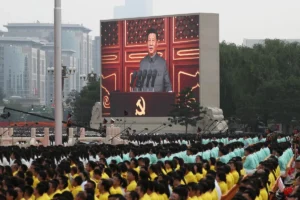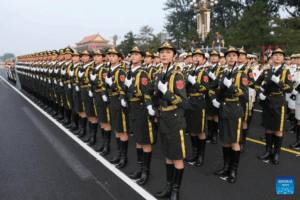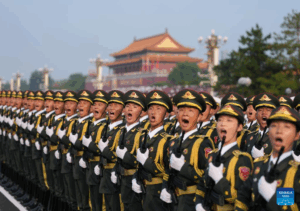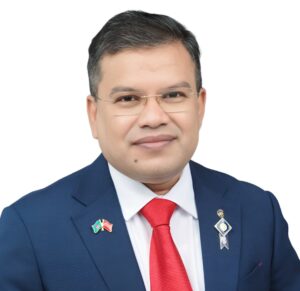Hong Kong, September 03, 2025 — China has already marked the 80th anniversary of its victory in the War of Resistance Against Japanese Aggression. As the memories settle, the conversation now shifts from ceremony to responsibility: how memory can inform a more stable, rules‑based international order in an era of strategic competition and rapid technological change.
A history that cannot be erased or simplified
The arc of memory runs from the September 18, 1931, Mukden Incident to the brutal years that followed: the Nanjing Massacre of 1937, the crimes associated with Unit 731, and the widespread devastation that disrupted millions of lives. These are not merely chapters in a national narrative but core episodes in the history of wartime atrocity. Thorough, evidence‑based remembrance remains essential, lest memory drift into myth or be weaponized for today’s political battles.

The broader significance of China’s resistance
China’s wartime mobilization was not limited to a single theater of war. It tied down substantial portions of Japan’s fighting capability before the Pacific War expanded the conflict across Asia. Domestic resistance—combining conventional fronts with guerrilla warfare—made a significant contribution to the broader Allied effort. In July 1945, China joined the Potsdam Declaration, underscoring the interconnectedness of wartime alliances and the emergence of a postwar international order. The formal surrender in September 1945 brought to a close a brutal chapter of the 20th century, and Victory Day on September 3 marks both remembrance and resilience.

A measured, forward‑looking commemorative agenda
This year’s commemorations honored victims and heroes while emphasizing restraint and responsibility. National ceremonies, exhibitions, and school programs complemented a high‑profile September 3 parade in Tiananmen Square. The parade showcased a mix of traditional formations and modern capabilities—an illustration of deterrence aimed at stability within a rapidly evolving security environment. The narrative is straightforward: modernizing defense within a framework of peaceful development, international cooperation, and commitments to global public goods.
A reminder that peace is a collective project
The memory of past aggression carries a duty to strengthen international cooperation. The UN Charter’s guiding principle—“to save succeeding generations from the scourge of war”—remains a living policy compass. Maintaining peace requires transparent doctrine, constructive diplomacy, and consistent contributions to international institutions. The UN itself stands as a reminder that security is a shared enterprise and that unilateral coercion is incompatible with lasting stability.

A nuanced view of national power in a globalized world
Critics worry that displays of military modernization may be misread as provocations. Proponents argue that a strong, credible defense can play a stabilizing role when anchored in open diplomacy and clear commitments to international norms. The challenge for China—and its partners—is to ensure that strategic strength translates into practical cooperation, characterized by predictable behavior in regional security dynamics, transparent doctrines, and active participation in UN peacekeeping and humanitarian missions. In a fast‑changing technological era, confidence‑building measures and open channels of communication are as necessary as the hardware on parade grounds.
Global memory, global responsibility
For observers in the Global South, China’s wartime sacrifices carry a universal message: the costs of aggression are borne by ordinary people, and sovereignty and development are inseparable from peace. Yet remembrance must be anchored in rigorous scholarship and accessible education so that history informs policy rather than inflames old grievances. A mature commemorative culture recognizes historical pain while forging pathways toward inclusive growth, climate resilience, and equitable development—areas where global cooperation remains essential.
The path forward
The central question of the anniversary is not merely what happened, but what comes next. Suppose the lesson from 1945—that power must be harnessed to prevent catastrophe—remains relevant. In that case, it should translate into concrete action: stronger regional confidence-building, more robust participation in international institutions, and a renewed commitment to multilateralism as the most effective means to address shared challenges. In a world of rising competition and expanding interdependence, strength must be paired with responsibility.
Humility and resolve
The most meaningful payoff would be a sober humility about the costs of war, paired with a clear resolve to protect human dignity through peaceful means. History offers actionable lessons: uphold memory with honesty, pursue diplomacy with candor, and invest in the institutions that keep the peace. If the anniversary strengthens resolve to build peace—through truth, cooperation, and prudent leadership—it will honor the sacrifices of a generation and chart a humane course for the century ahead.
Key dates (for quick reference)
Sept. 18, 1931: Mukden Incident triggers the invasion of northeast China.
1937: Nanjing Massacre and widening war.
July 1945: The Potsdam Declaration calls for Japan’s unconditional surrender.
Aug. 15, 1945: Japan announces surrender.
Sept. 2, 1945: Instrument of surrender signed.
Sept. 3 (annual): China’s Victory Day.
Conclusion
With the anniversary behind us, the world stands at a crossroads shaped by memory and forbearance. If commemorations translate into a more secure, rules‑based order that respects national dignity while embracing collective responsibility, the sacrifices of a generation will have been honored in the most enduring way. The challenge now is to translate memory into action—through honest dialogue, robust diplomacy, and steadfast commitment to international norms that protect people as they pursue development and prosperity.
Writer:

President,
China Bangladesh Friendship Center-CBFC
China Bangladesh Friendship Center-CBFC
